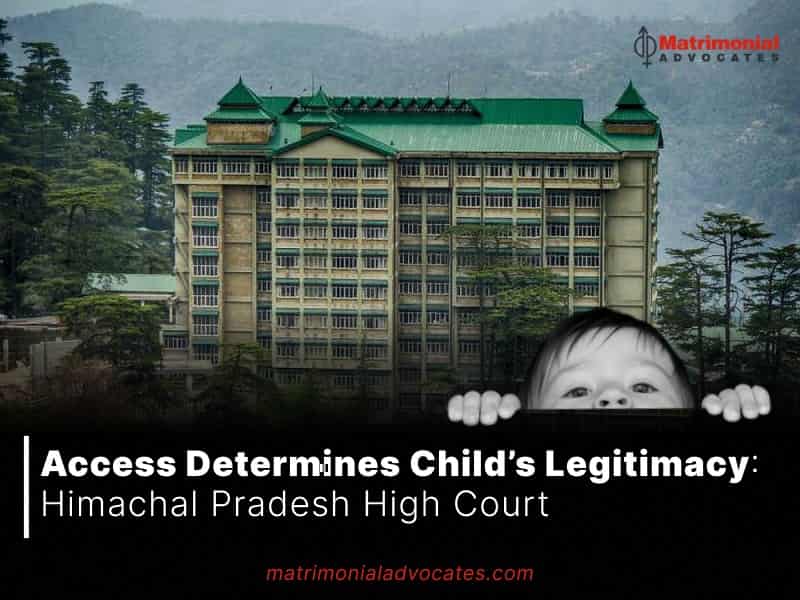
During a recent hearing, Justice Joytsna Rewal Dua of the Himachal Pradesh High Court stated that if a couple has access to each other, it serves as conclusive proof of the legitimacy of their child. This means that Section 112 of the Indian Evidence Act, 1872 applies in such cases. The statement was made while hearing a petition filed by a husband seeking a DNA test of the child and the parties. The plea was challenging the order of the District Judge Shimla, which had rejected the husband’s application.
In the ongoing legal proceedings under Section 13(1)(ia) and (ib) of the Hindu Marriage Act, the petitioner (husband) had filed an application seeking a DNA test of the child and the parties. Upon reviewing the available records, the court observed that the couple had access to each other, and the husband had acknowledged this fact during his testimony as PW-1. Additionally, he had not denied access to his wife in his divorce petition. The court concluded that this access, coupled with the fact that the child was born during the subsistence of a valid marriage, provided conclusive proof of the baby’s legitimacy under Section 112 of the Indian Evidence Act. The husband’s application seeking a DNA test was thus dismissed.
The court elaborated on its previous statement and clarified that if one party to a marriage can prove that there was no access to the other party, then the presumption of legitimacy under Section 112 of the Indian Evidence Act would not apply. However, if there was cohabitation between the husband and wife and no evidence of impotence is presented, then any child born from their wedlock is presumed to be legitimate, regardless of any infidelity on the part of the wife. The bench reiterated that this presumption can only be displaced if it is proven that there was no access between the parties during the relevant time period.
Justice Dua emphasized that Indian law places a strong emphasis on legitimacy and disapproves of illegitimacy. Therefore, the presumption of legitimacy under Section 112 of the Indian Evidence Act should not be easily overturned, and the fact that a woman is living in adultery alone is insufficient to challenge the presumption of a child’s legitimacy. The bench highlighted that the only way to overcome the conclusive presumption is to prove that there was no access between the parties during the relevant time period. The court pointed out that Section 112 of the Evidence Act states that the party questioning the legitimacy of a child’s birth cannot rely on this section if they can show that the parties had no access to each other. In this case, the respondent-wife had admitted during her testimony as RW-1 that the child was born to her and the petitioner-husband, thereby indicating that the child was the husband’s progeny.
The court commented on the husband’s actions in this case, noting that he had sought a divorce on the grounds of cruelty and desertion but had only alleged that the child was not his based on what the wife had told him. The bench pointed out that it was the husband’s responsibility to prove his case with evidence, and he could not rely on a paternity test under Section 45 of the Indian Evidence Act to hunt for evidence, as this would infringe on the child’s right to privacy. The court emphasized that it was the husband’s job to support his allegations of cruelty and desertion with evidence, and he could not attempt to fill gaps in his case by seeking a DNA test of the child and the parties. As a result, the court dismissed the husband’s plea.
Source: https://www.livelaw.in/news-updates/himachal-pradesh-high-court-marriage-couple-access-child-legitimacy-dna-test-section-112-evidence-act-225699






